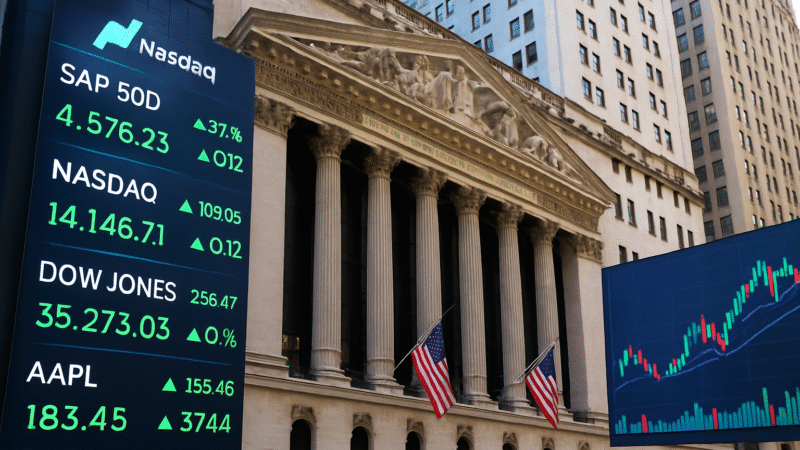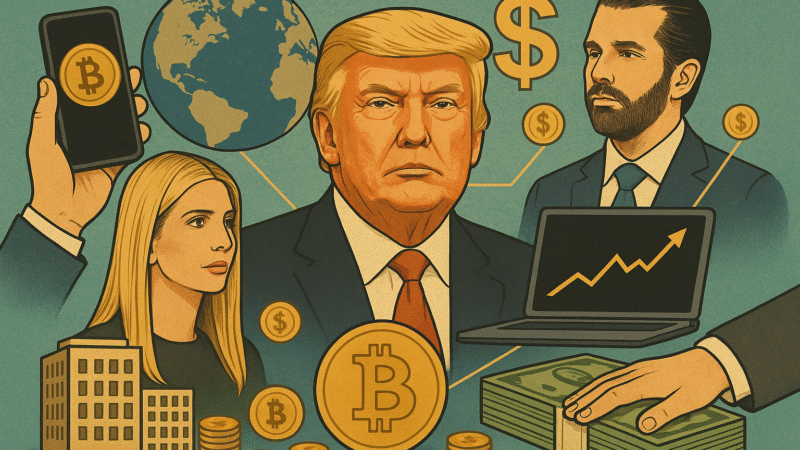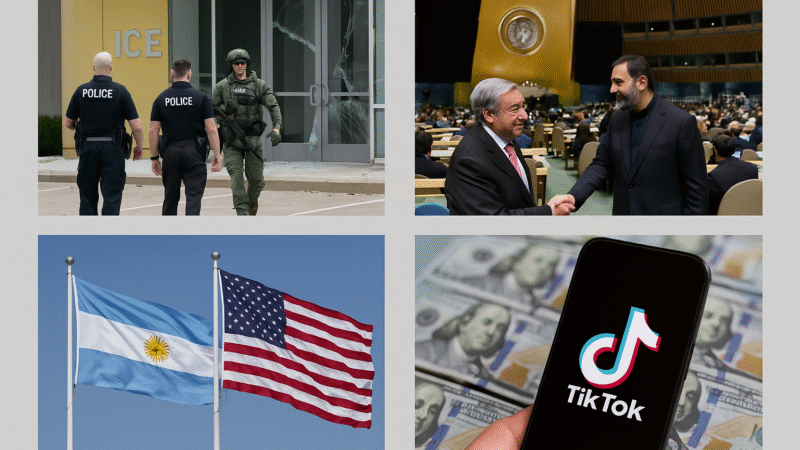Changpeng Zhao Pardon Signals A New Chapter In US Crypto Regulation
Introduction
President Donald Trump’s decision in October 2025 to issue a full presidential pardon to Changpeng Zhao often referred to as CZ has quickly become one of the most significant political and regulatory developments in the history of cryptocurrency. Zhao is the founder of Binance the world’s largest crypto exchange by trading volume and one of the most influential figures in digital finance. His legal troubles in the United States had once represented the peak of regulatory enforcement pressure on the industry. With a single political decision that pressure has now been recalibrated sparking debate about the future of crypto policy corporate compliance and international responses.
The Rise Of CZ And Binance
Changpeng Zhao built Binance in only a few years into the most dominant global cryptocurrency exchange. Binance capitalized on fast execution, low fees and rapid listing of new tokens becoming a marketplace for millions of traders worldwide. At its peak Binance handled more trading volume than its next top competitors combined which gave Zhao immense global influence over the crypto economy.
However the astonishing growth of Binance placed it under the scrutiny of regulators who argued that its explosive rise was aided by the lack of proper anti money laundering controls, customer verification systems and oversight measures expected from a platform handling massive financial flows. According to US authorities the platform allowed transactions from criminal entities, terrorist groups and sanctioned nations to occur without adequate monitoring. These allegations would eventually lead to one of the most consequential legal cases in the crypto sector.
The Legal Case And Conviction
In 2023 Zhao faced criminal charges in the United States for failing to ensure that Binance complied with US anti money laundering regulations. The case concluded with Zhao pleading guilty and accepting responsibility for shortcomings in compliance through the exchange’s operations. In addition to stepping down as CEO he paid a significant financial penalty personally and Binance paid a record breaking multibillion dollar settlement to US regulators.
In 2024 he served a relatively short prison term of four months which became symbolic of the US government’s stance at the time. It was seen as proof that even the biggest names in crypto would face consequences if they failed to meet established legal and regulatory frameworks. Many across the industry interpreted this as a turning point where governments asserted their authority over digital asset marketplaces.
Binance’s future in the United States seemed uncertain and Zhao’s personal influence on the US crypto landscape appeared to be fading rapidly. The case became a reference point for crypto compliance worldwide.
A Sudden Political Shift: The Presidential Pardon
The shift came abruptly in October 2025 when Donald Trump issued a presidential pardon to Zhao. The decision overturned the remaining legal restrictions tied to his conviction and symbolically restored his standing in the United States.
Trump’s justification was positioned around a belief that previous government actions amounted to a war on crypto which he claimed had stifled innovation US leadership in emerging financial technologies and economic competitiveness. Zhao expressed gratitude for the pardon and pledged to contribute toward making the United States a global hub for cryptocurrency advancement.
Beyond its personal impact on Zhao the pardon became a major political signal. Rather than leaving regulatory decisions solely to legal frameworks it highlighted that crypto policy is now directly influenced by political agendas and leadership changes. Companies, investors and global governments immediately began reevaluating the implications.
Why The Pardon Matters An Industry And Regulatory Turning Point?
A Reset of US Regulatory Attitude
The move suggests that under Trump’s leadership the US may pursue a lighter regulatory environment more favorable to crypto firms. Enforcement actions once celebrated as victories for financial oversight might now be viewed through the lens of political overreach. This potential recalibration could influence how future policies are shaped particularly around compliance strictness taxation and exchange licensing.
Politics Becomes a Central Force in Crypto
The pardon demonstrates that the rules governing cryptocurrency will increasingly be influenced by the agendas of elected leaders. Businesses must now track not only market volatility and innovation trends but also regulatory policy shifts tied to elections and political power balances.
A Mixed Message to Industry Compliance Practices
There is a risk that organizations might interpret the move as evidence that political alignment could override legal accountability. Some may scale back compliance investments if they believe government enforcement can be neutralized with the right influence. On the other hand regulators may respond by doubling down to reinforce their authority. It creates a volatile and unpredictable compliance environment.
Criticisms And Concerns
The pardon has not been free from backlash. Critics argue that justice may be undermined when the most powerful or wealthiest individuals are able to leverage political connections to avoid legal consequences. Questions have been raised about potential conflicts of interest especially given that members of Trump’s circle have shown increasing involvement in crypto business deals.
There is also concern that this move could weaken faith in global regulatory cooperation. Agencies in Europe, Asia and other regions have invested heavily in strengthening crypto oversight. If a major enforcement case in the US is forgiven those efforts may be met with increased skepticism or intensified defensive regulation.
What This Means For Binance And Competition?
For Binance the pardon does not automatically erase all regulatory challenges in the US. The company still faces ongoing compliance obligations and operational restrictions. However the political change may open pathways for re entry into the American market expanding trading options and strategic partnerships.
Competitor exchanges licensed in the US may feel newly pressured if Binance returns with stronger legitimacy and investor confidence. The outcome of these shifts could shape the future competitive landscape of the global crypto economy for years to come.
Global Domino Effects: How Other Countries May Respond?
Regulatory decisions in the United States often create ripple effects across global markets. The pardon may encourage some nations to adopt a more innovation-friendly stance toward crypto. Others however may view the move as a loosening of discipline that requires stricter enforcement at the local level.
Countries that rely on US policies for guidance, especially those developing emerging regulatory frameworks are now reassessing their own approach. Legal uncertainty might increase temporarily while governments observe how the United States acts next.
The Impact On India And Asia
India plays a rapidly growing role in the global crypto economy with millions of retail investors blockchain startups and active development communities. However India’s regulatory approach has remained cautious, characterized by high crypto taxation and unresolved classification issues. The pardon could influence India in two different directions:
Encouraging greater openness to global crypto business
If American policy shifts toward embracing cryptocurrency India may feel pressure to remain competitive and supportive of innovation so that market opportunities are not lost to other financial hubs in Asia.
Triggering stronger enforcement and compliance
India may move to demonstrate that it will not replicate a perceived US leniency toward crypto related misconduct insisting on strict anti money laundering and taxation enforcement.
Retail investors in India may interpret the US change as validation of the asset class leading to increased participation and market enthusiasm. At the same time risk may rise if regulatory coordination across borders becomes more fragmented.
The Future Navigating A New Political Landscape For Crypto
The crypto industry now faces heightened uncertainty. Stakeholders must closely monitor the initiatives that follow this decision including regulatory reform proposals, stablecoin frameworks, exchange licensing rules and institutional adoption in the United States.
Will the US introduce clearer laws that support innovation And will those laws prioritize compliance and financial integrity or lean toward aggressive deregulation These questions will determine whether the pardon becomes a foundation for responsible technological advancement or opens the door to greater systemic risk.
Conclusion
The pardon of Changpeng Zhao is far more than a personal legal victory. It marks a major turning point in how the United States signals its intentions toward digital financial systems. It challenges the belief that regulatory enforcement alone will define the rules of crypto engagement. Politics, business and global market strategy are now intertwined more tightly than ever before.
For investors, businesses and regulators worldwide the message is clear: The future of cryptocurrency will be shaped as much by government power shifts as by blockchain innovation. Whether this leads to a stronger safer crypto ecosystem or greater instability depends on how nations respond in the coming years.



